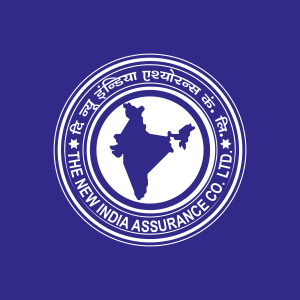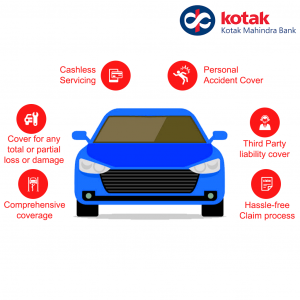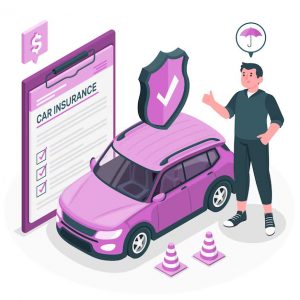Selecting the right car insurance is a crucial decision for every vehicle owner in India. It not only safeguards your precious asset but also provides financial security in case of unforeseen events. In this comprehensive guide, we will explore over 20 top car insurance companies in India, offering easy-to-understand details such as the number of network garages and the claim settlement ratio. This information is essential for making an informed choice that balances reliability and affordability.
Car insurance in India is a type of insurance policy that provides financial protection and coverage for various risks associated with owning and operating a motor vehicle. It is mandatory for every vehicle owner to have at least a basic form of car insurance in India, as per the Motor Vehicles Act, 1988. There are primarily two types of car insurance policies available in India:
Types of Car Insurance
In India, car insurance comes in two primary forms:
● Third-Party Liability Insurance:
This is the minimum mandatory coverage required by law. Third-party liability insurance provides coverage for any legal liabilities arising from injury or damage to third parties (individuals or property) due to an accident involving the insured vehicle. It does not cover damages to the insured vehicle itself.
● Comprehensive Insurance:
Comprehensive car insurance provides coverage for a broader range of risks. It includes both third-party liability coverage and coverage for damages to the insured vehicle. This type of policy protects against accidents, theft, fire, vandalism, natural disasters, and other specified perils.
Key Components of Car Insurance :
1. Own Damage (OD) Coverage:
This covers damages to the insured vehicle due to accidents, collisions, theft, fire, natural disasters, and other specified events.
2. Third-Party Liability Coverage:
This component covers legal liabilities arising from injury or damage to third parties and their property.
3. Personal Accident Cover:
Car insurance includes coverage for the owner/driver in case of accidental death or bodily injury. This coverage may also extend to passengers.
4. No Claim Bonus (NCB):
NCB is a reward given to policyholders for not making any claims during the policy period. It leads to a discount on the premium during policy renewal.
5. Add-On Covers:
Car owners can enhance their coverage by opting for add-ons or riders. These include zero depreciation cover, engine protection cover, roadside assistance, return to invoice cover, and more.
6. Premium:
The premium is the amount paid by the policyholder to the insurance company for the coverage provided. It can vary based on factors such as the type of coverage, the make and model of the car, the policyholder’s driving history, and more.
7. Deductibles:
A deductible is the amount that the policyholder agrees to bear before the insurance company starts covering the expenses. It is applicable to own damage claims.
8. Insured Declared Value (IDV):
IDV is the maximum amount that the insurance company agrees to pay in case of total loss or theft of the insured vehicle. It is calculated based on the market value of the vehicle.
9. Mandatory Requirement:
Car insurance is a legal requirement in India, and every vehicle on the road must have at least third-party liability coverage. Failing to comply with this requirement can lead to penalties, including fines and even suspension of the vehicle’s registration.
Car insurance in India is offered by various insurance companies, and policyholders can choose the type of coverage and additional add-ons based on their preferences and needs. It is important for vehicle owners to carefully read and understand the terms and conditions of their car insurance policy to ensure they have the appropriate coverage for potential risks.
The term “best car insurance in India” refers to the insurance policy or provider that is considered most suitable for an individual’s specific needs and preferences. The definition of the “best” car insurance can vary from person to person based on their priorities, requirements, and expectations.
Factors for Best Car Insurance
Considerations for determining the best car insurance:
1. Coverage Adequacy:
The best car insurance should offer comprehensive coverage that adequately protects the policyholder against various risks, including accidents, theft, natural disasters, and third-party liabilities.
2. Claim Settlement Process:
A good car insurance provider should have a smooth and efficient claim settlement process. The best car insurance is often associated with a high claim settlement ratio, indicating the percentage of claims settled by the insurer.
3. Customer Service:
The responsiveness and quality of customer service play a crucial role in determining the best car insurance. A provider with excellent customer support can offer assistance and address concerns promptly.
4. Network of Garages:
A wide network of authorized garages for cashless repairs is a desirable feature. The best car insurance providers often have a large number of network garages, making it convenient for policyholders to get repairs done.
5. Premium Costs:
Affordability is a significant consideration. While looking for the best car insurance, individuals often compare premium costs across different providers to find a balance between coverage and price.
6. Add-Ons and Customization:
The ability to customize the policy with add-ons and additional coverage options is another aspect that contributes to the best car insurance. It allows policyholders to tailor the coverage to their specific requirements.
7. Policy Terms and Conditions:
Understanding the terms and conditions of the policy is crucial. The best car insurance should have clear and transparent terms, with minimal ambiguity.
8. Reviews and Ratings:
Customer reviews, ratings, and testimonials can provide insights into the experiences of others with a particular insurance provider. Positive reviews and high ratings may influence the perception of the best car insurance.
9. Financial Stability:
The financial stability of the insurance company is vital. A financially stable insurer is more likely to fulfil its financial commitments and settle claims promptly.
10. Ease of Online Transactions:
In today’s digital age, the best car insurance providers often offer user-friendly online platforms for policy purchase, renewal, and claims processing.
Ultimately, the best car insurance is a subjective choice based on individual preferences and priorities. It’s recommended for individuals to carefully assess their needs, compare available options, and choose an insurance policy and provider that aligns with their specific requirements and expectations.
Key Features of Car Insurance Policies:
Car insurance typically comes with a variety of features designed to provide financial protection and coverage for various risks associated with owning and driving a vehicle.
1. Third-Party Liability Coverage:
Protects against legal liabilities arising from injury or damage caused to third parties or their property in an accident where the insured vehicle is at fault.
2. Own Damage Coverage:
Provides coverage for damage to the insured vehicle due to accidents, collisions, fire, theft, vandalism, natural disasters, and other specified perils.
3. Personal Accident Cover:
Offers financial protection in case of accidental death or bodily injury to the owner/driver of the insured vehicle. This coverage may also extend to passengers.
4. No Claim Bonus (NCB):
Provides a discount on the premium during policy renewal if no claims are made during the previous policy period. NCB encourages safe driving and responsible behaviour.
5. Comprehensive Coverage:
Combines third-party liability and own damage coverage, offering a more extensive protection package for the insured vehicle.
6. Zero Depreciation Cover:
Waives off the depreciation on the value of the vehicle’s parts during a claim, ensuring a higher claim amount for repairs or replacements.
7. Engine Protection Cover:
Offers financial assistance for repairs or replacements of the insured vehicle’s engine, especially due to water damage, oil spills, or breakdowns.
8. Roadside Assistance:
Provides assistance services such as towing, fuel delivery, flat tire repair, and minor repairs in case of vehicle breakdowns, often available 24/7.
9. Return to Invoice (RTI) Cover:
Ensures that the policyholder receives the invoice value of the insured vehicle in case of total loss, theft, or constructive total loss, preserving the purchase price.
10. Daily Allowance Cover:
Compensates for daily travel expenses when the insured vehicle is in the garage for repairs, ensuring budget-friendly commuting during the repair period.
11. Passenger Cover:
Covers medical expenses, disability, or death of passengers in the insured vehicle in case of an accident, providing additional safety beyond regular coverage.
12. Consumables Cover:
Reimburses expenses for consumable items used during repairs, such as nuts, bolts, lubricants, and other items, applicable for cars under a certain age.
13. Tyre Protect Cover:
Pays for the repair or replacement of damaged tires, offering financial relief from the cost of tire-related issues.
14. Key Replacement Cover:
Reimburses expenses for replacing lost, stolen, or damaged car keys, including repairs to the lock-set.
15. Loss of Personal Belongings Cover:
Compensates for the loss and damage to personal belongings, including electronic equipment, stolen from the insured vehicle.
Top Car Insurance Companies in India:
Reviewing leading insurers based on network garages and claim settlement ratios.
| Insurance Company | Network Garages | Claim Settlement Ratio |
|---|---|---|
| Bajaj Allianz Car Insurance | 4000 | 98.5% |
| Chola MS Car Insurance | 4636 | 96% |
| Magma HDI | 4000 | 97.1% |
| Digit Car Insurance | Repair Anywhere | 96% |
| Future Generali Car Insurance | 3500 | 96.3% |
| HDFC ERGO Car Insurance | 8200 | 99% |
| IFFCO Tokio Car Insurance | 4300 | 95.8% |
| Kotak Mahindra Car Insurance | 2327 | 98% |
| Liberty Car Insurance | 4500 | 98% |
| National Car Insurance | 3100 | 93% |
| New India Assurance Car Insurance | 3000 | 90% |
| Oriental Car Insurance | 3100 | 94% |
| Raheja QBE Car Insurance | 1000 | 92% |
| Reliance Car Insurance | 8200 | 98% |
| Royal Sundaram Car Insurance | 3300 | 98.6% |
| SBI Car Insurance | 16000 | 100% |
| Shriram Car Insurance | 2000 | 96% |
| Tata AIG Car Insurance | 7500 | N/A |
| United India Car Insurance | 3100 | 95% |
| Universal Sompo Car Insurance | 3500 | 96% |
| Zuno Car Insurance | 1500 | 98% |
Understanding the Numbers:
- Network Garages: A higher number of network garages makes it easier for you to get your car fixed promptly. This is crucial for quick and hassle-free repairs after an accident or damage.
- Claim Settlement Ratio: The claim settlement ratio indicates how efficient insurance companies are at settling claims. A higher ratio is generally indicative of reliability and trustworthiness. SBI Car Insurance, with a perfect ratio of 100%, stands out for its exceptional track record in this regard.
Additional Insights:
Explore More Options: While the provided list covers key details about the top car insurance companies, it’s essential to explore further options based on your specific requirements. Keep an eye out for any updates or changes in the information, as the insurance landscape may evolve over time.
Choosing the best car insurance in India involves a careful consideration of factors such as the number of network garages and the claim settlement ratio. This guide provides a comprehensive overview of over 20 top insurance companies, offering a balance between reliability and affordability. With this information, you can hit the road with confidence, knowing that your chosen insurance provider is not only trustworthy but also well-equipped to meet your unique needs. Stay informed, explore your options, and enjoy a secure and worry-free driving experience.
Frequently Asked Questions (FAQs)
Q1. What is the difference between third-party liability insurance and comprehensive insurance in India?
A1. Third-party liability insurance covers legal liabilities arising from injury or damage to third parties, while comprehensive insurance includes both third-party coverage and protection for damages to the insured vehicle, offering a broader range of risks.
Q2. How does the No Claim Bonus (NCB) work, and how can it benefit car owners in India?
A2. NCB is a reward given to policyholders for not making any claims during the policy period. It leads to a discount on the premium during policy renewal, encouraging safe driving and responsible behaviour.
Q3. What are some common add-ons or riders available for car insurance in India, and how do they enhance coverage?
A3. Add-ons include options like zero depreciation cover, engine protection cover, roadside assistance, return to invoice cover, and more. These enhance coverage by providing additional protection for specific risks and situations.
Q4. Why is the claim settlement ratio important when choosing a car insurance provider in India?
A4. The claim settlement ratio indicates the efficiency of an insurance company in settling claims. A higher ratio suggests reliability and trustworthiness, making it a crucial factor to consider when selecting a car insurance provider.
Q5. Is it necessary to have car insurance in India, and what are the potential consequences of not having it?
A5. Yes, car insurance is mandatory in India as per the Motor Vehicles Act, 1988. Failing to comply with this requirement can lead to penalties, including fines and even suspension of the vehicle’s registration. It also provides financial security and coverage in case of unforeseen events.











